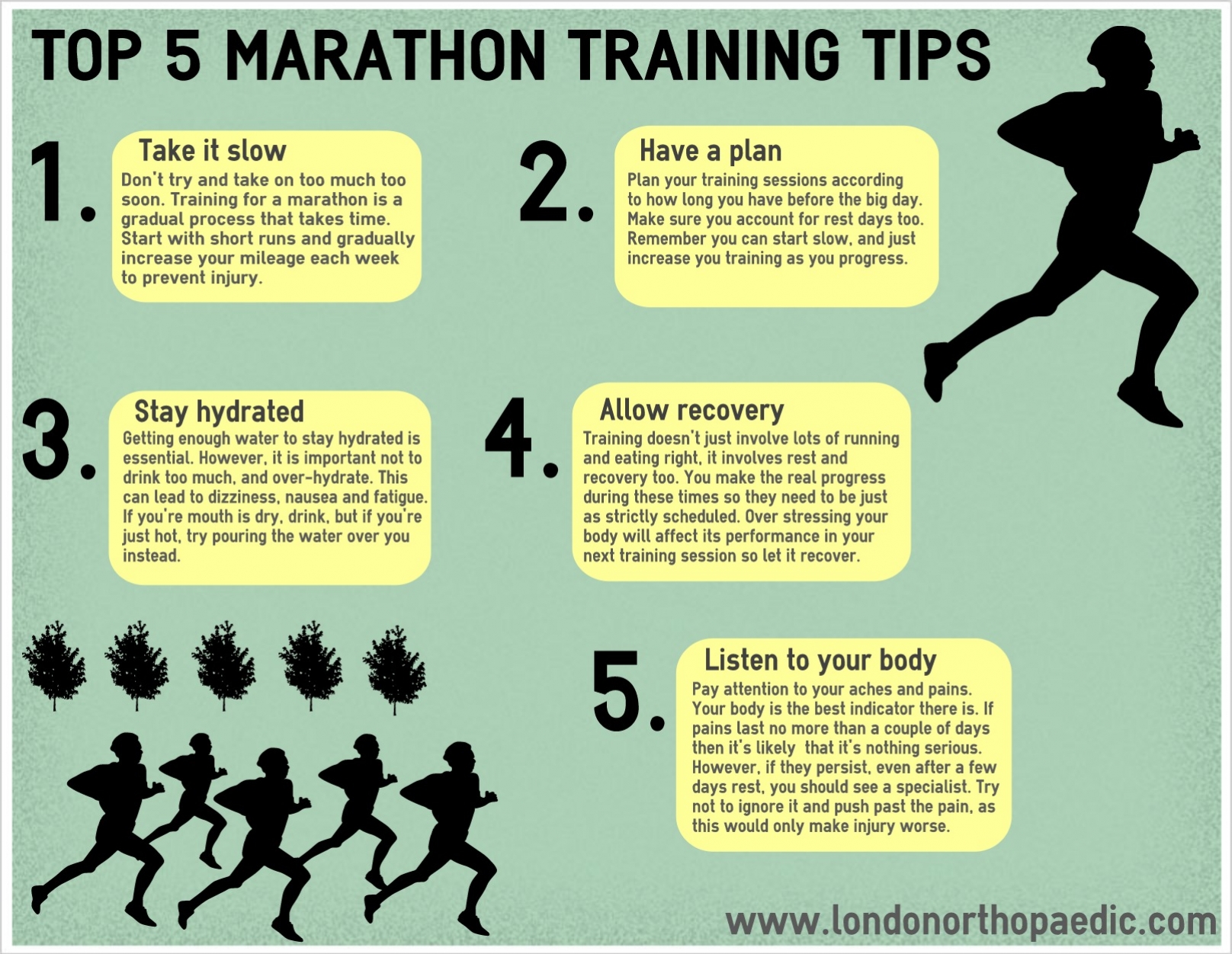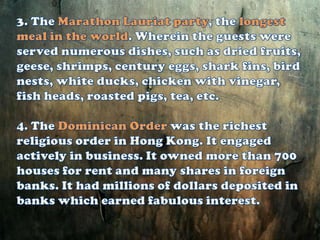Marathon Running Strategies
To excel in marathon running, incorporate interval training and proper nutrition for optimal performance. Effective strategies lead to success.
Marathon running requires careful planning and preparation to achieve peak performance and endurance. By implementing the right training techniques, such as interval training and long runs, you can improve your speed, stamina, and overall performance on race day. Additionally, focusing on nutrition and hydration is crucial for maintaining energy levels and preventing fatigue during long runs.
We will explore various strategies and tips to help you become a successful marathon runner. By following these guidelines, you can enhance your running capabilities and reach your full potential as a marathon athlete.

Credit: visual.ly
Setting Goals
Setting goals is a critical component of a successful marathon training strategy. Defining clear and achievable objectives can help athletes stay motivated, focused, and committed to their training program. By determining target times and milestones, runners can develop a structured and personalized approach to reaching their desired performance levels.
Defining Your Objective
Before diving into marathon training, it’s important to establish a specific objective to work towards. This could be completing the race within a certain time, improving overall stamina and endurance, or achieving a personal best. By clearly defining the objective, runners can align their training plan with their desired outcomes and track progress effectively. Moreover, setting an objective provides a sense of purpose and drive, which is crucial for long-term commitment.
Determining Your Target Time
When setting time-based goals, it’s essential to consider both overall race time and individual mile or kilometer splits. By breaking down the race into smaller, manageable segments, runners can develop a better understanding of their pace and stamina requirements. Additionally, determining a target time enables athletes to tailor their training intensity, speed workouts, and long runs to match the specific demands of their goal.

Credit: m.youtube.com
Building Endurance
Endurance plays a crucial role in successful marathon running. By progressively increasing your mileage and incorporating long runs into your training regimen, you can significantly enhance your endurance levels.
Gradual Mileage Increase
- Start slow: Begin with a comfortable distance and gradually increase it.
- Avoid sudden jumps: Increases should be incremental to prevent injury.
Incorporating Long Runs
- Plan regular long runs: Include one long run per week in your training schedule.
- Focus on total time: Gradually extend the duration of your long runs.
Speed Training
Speed Training: Improving speed is crucial for marathon runners to enhance performance and achieve personal bests. Speed training involves various techniques that focus on increasing pace and endurance. Two effective methods for speed training are Interval training and Fartlek runs.
Interval Training
Involves alternating between high-intensity bursts of speed and periods of rest or lower intensity. This method helps in boosting speed, cardiovascular fitness, and endurance.
Fartlek Runs
A Swedish term meaning “speed play,” Fartlek runs involve continuous running with varying speeds and intensities. This technique improves speed, endurance, and mental toughness.
Nutrition And Hydration
Proper nutrition and hydration are vital components of successful marathon running strategies. Fueling the body adequately during training and on race day can significantly impact performance and endurance.
Fueling During Training
During marathon training, it’s important to focus on a well-rounded nutritional plan. Ensure that your diet includes a balance of carbohydrates, protein, and healthy fats to support training efficiency. In addition, stay hydrated by drinking plenty of water and consuming electrolyte-replenishing drinks as needed.
Race Day Nutrition Plan
On race day, your nutrition plan should be carefully thought out to optimize performance. Aim to consume a meal high in complex carbohydrates the night before the race. On the morning of the marathon, have a light, easily digestible breakfast such as oatmeal or a banana. During the race, consume energy gels, chews, or sports drinks at regular intervals to maintain energy levels and stay hydrated. It’s essential to listen to your body and adjust intake as needed.
Mental Preparation
When it comes to marathon running, physical fitness is just one part of the equation. Mental preparation plays a crucial role in determining a runner’s performance on race day. Developing the right mindset can help athletes push through the grueling miles and overcome challenges along the way. In this article, we will explore two mental strategies that can help marathon runners unlock their full potential: visualization techniques and positive self-talk.
Visualization Techniques
Visualization is a powerful tool that can help runners mentally prepare for the demands of a marathon. By creating a mental image of the race, athletes can familiarize themselves with the course, envision their desired outcomes, and develop a sense of confidence. Here are a few visualization techniques that can be helpful:
- Close your eyes and imagine yourself at the starting line, feeling a surge of adrenaline running through your veins. Picture the crowds cheering, the excitement in the air, and the sound of the starting gun.
- Visualize each segment of the course in detail. Imagine each hill, curve, and water station. Envision yourself running smoothly, maintaining a steady pace, and feeling strong with each step.
- Imagine crossing the finish line with a sense of accomplishment, hands held high in jubilation. Visualize the emotions you will experience as you achieve your marathon goal.
Positive Self-talk
In addition to visualization, positive self-talk is another effective technique for mental preparation. The thoughts and beliefs we have about ourselves can influence our performance. By replacing negative self-talk with positive affirmations, athletes can boost their confidence and motivation. Here’s how you can incorporate positive self-talk into your marathon training:
- Remind yourself of your training accomplishments. Say, “I have put in the hard work, and I am ready for this challenge.”
- Encourage yourself during difficult moments. Repeat phrases such as, “I am strong,” “I can do this,” and “I am resilient.”
- Focus on the present and stay in the moment. Instead of dwelling on negative thoughts or worrying about the miles ahead, tell yourself, “I am in control of my pace, one step at a time.”
By implementing visualization techniques and positive self-talk, marathon runners can strengthen their mental resilience and overcome the psychological barriers that may arise during the race. Remember, a strong mind is just as important as strong legs when it comes to crossing the marathon finish line.

Credit: www.theeap.com
Frequently Asked Questions For Marathon Running Strategies
How Should I Train For A Marathon?
To train for a marathon, follow a structured training plan that includes long runs, speed work, and cross-training exercises.
What Is The Best Nutrition For Marathon Runners?
A balanced diet with a focus on carbohydrates, protein, and healthy fats is essential for marathon runners. Incorporate foods like whole grains, lean meats, fruits, vegetables, and plenty of water.
How Do I Prevent Marathon Running Injuries?
To prevent marathon running injuries, gradually increase your mileage, incorporate strength training, listen to your body, wear proper running shoes, and take rest days to allow for recovery.
Conclusion
To sum up, implementing the right marathon running strategies can significantly improve your performance and endurance. By incorporating proper training, pacing, fueling, and mental preparation, you can enhance your overall running experience and achieve your desired goals. Remember, consistency and patience are key to success in long-distance running.
Keep pushing your limits and enjoy the journey!







